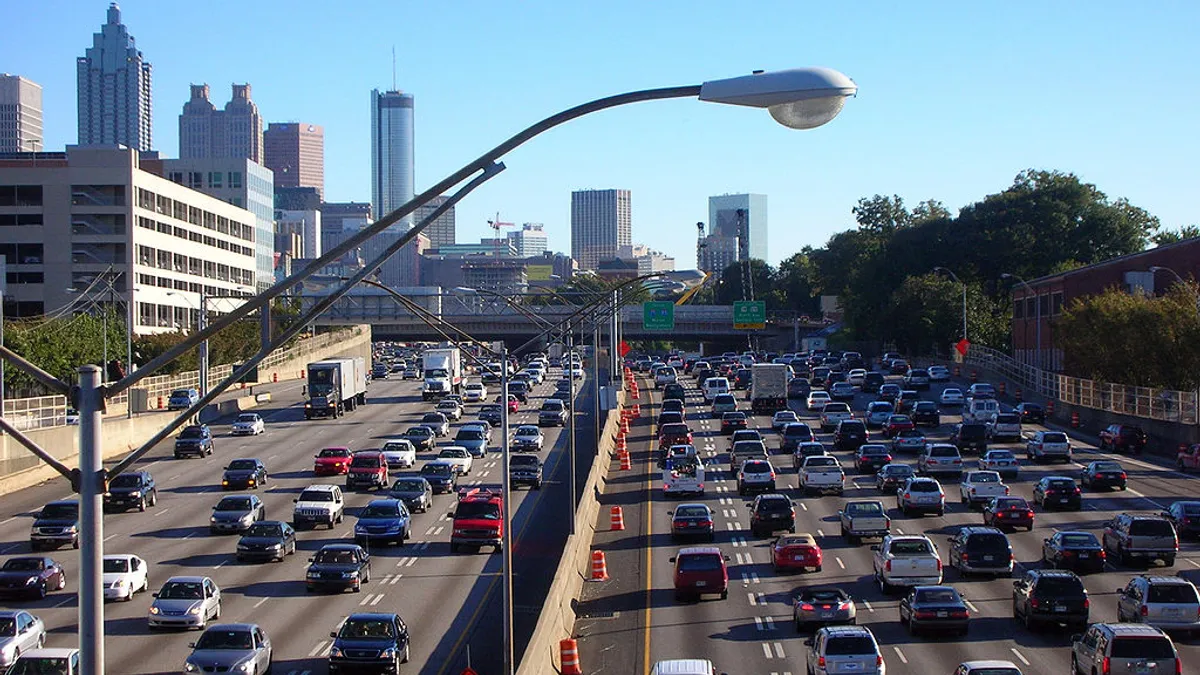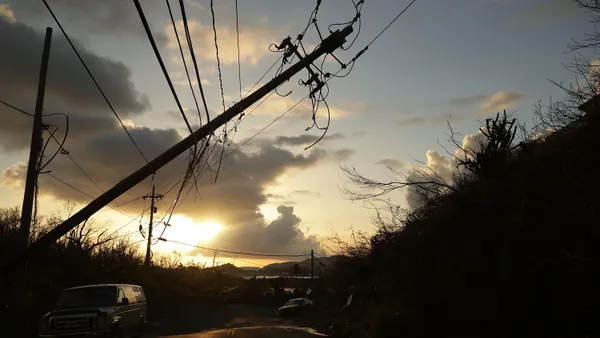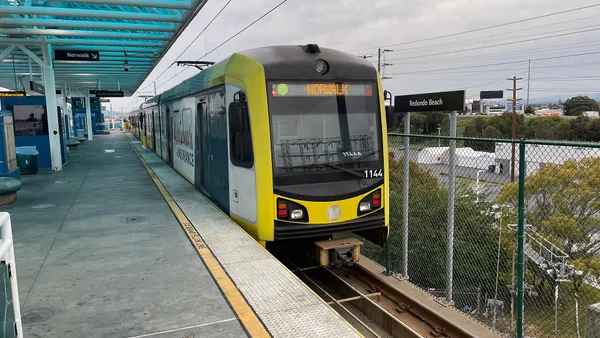Dive Brief:
- Self-driving cars are using software simulations borne from real-world experiences to learn how to navigate difficult intersections and other adverse conditions, according to Recode.
- Google's parent company Alphabet is working on such technology, driving 8 million miles each day in simulations. That's in addition to the 3 million–plus road miles it has under its belt so far.
- Alphabet engineers take data gathered from real-world tests of self-driving cars and add variations to the particular scenario, such as pedestrians and faster cars, before sharing that skill with the company's vehicle network.
Dive Insight:
Preparing for the unpredictable is one hurdle facing connected and autonomous vehicle (CAV) technology. While private companies like Uber are exploring the CAV market with driverless pilot programs and internal leadership to support development in the field, these and other similar initiatives face resistance over safety concerns and questions about the need for human intervention.
That, however, hasn't stopped development of the technology. General Motors' (GM) Cruise Automation recently debuted Generation 3, which it says is the world's first production-model autonomous vehicle. Built in one of GM's Michigan assembly plants, the car comes equipped with backup systems that can process data and kick in if necessary to keep passengers safe. Still, that technology will need to undergo the kind of testing Alphabet and others are honing before it can hit the market.
States and municipalities are beginning to plan for the future of CAV, with testing underway in many parts of the country. Samsung was recently granted a license to test self-driving vehicles in California, joining almost 40 other companies — including Tesla, Ford and GM — that are exploring such technology in the state. Florida, Michigan and Georgia are among other states already testing CAV.
The number of groups developing CAV is steadily growing and codified expectations in the form of federal regulations could hasten that development. The Transportation Department this week revealed voluntary guidelines for companies looking to test the technology on public roads. The release follows similar guides issued by the Obama administration last fall, and they are expected to be updated as CAV develops.
The move aims to give automakers a consistent but achievable set of expectations upon which to base their research and development. It also clarifies states' roles in regulating autonomous CAV, including traffic law enforcement and vehicle insurance mandates. The move comes just a week after a bill was passed in the House calling for the establishment of federal regulations for CAV, the largest attempt yet to formally regulate the technology.














